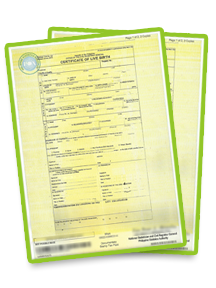
An authorization letter is one of the simplest yet most relied-on documents in the Philippines. It is a formal document that grants a person the authority to act on your behalf. This simple piece of paper is a powerful tool, recognized by banks, government offices, and private businesses. It is your official way of saying, "I trust this person to handle this for me."
Because schedules, distances, and official requirements rarely align perfectly, authorization letters have become a quiet backbone of daily transactions. In the Philippines, where many government and private services still require personal appearance, these letters have become a lifeline. They are recognized in offices, banks, schools, and even barangay halls. They turn trust into a formal agreement and make it possible for households and communities to function smoothly even when someone cannot personally attend to an obligation.
Far from being a mere courtesy, an authorization letter is a binding delegation of authority. Properly written, it makes your instructions clear, protects both you and the receiving office, and speeds up processes that would otherwise stall. Its legal power comes from your explicit consent plus your signature, factors that make it admissible and binding under Philippine law. In effect, it is like deputizing someone you trust to stand in for you.
Common Situations Where Filipinos Use Authorization Letters
Authorization letters are woven into daily Filipino life. Here are a few familiar examples:
- Claiming packages or remittances from courier services or money transfer centers.
- Picking up school records like transcripts, report cards, or certificates.
- Collecting medical results or prescriptions
- Handling utilities such as signing documents for water, electricity, or internet services.
- Claiming government-issued IDs or certificates like passports, PRC IDs, or PSA documents (birth certificates, marriage certificates, CENOMAR)
- Barangay or homeowners’ association matters when the property owner is unavailable.
Each scenario underscores one truth: when you cannot show up, an authorization letter lets your chosen representative do so legitimately.
How to Draft an Effective Authorization Letter
The beauty of an authorization letter is its simplicity. A basic format already works as long as it clearly states the following:
- Date
- Recipient/organization (who the letter is addressed to)
- Your complete details (name,ID, contact info)
- Authorized Person’s details (name, ID, relationship)
- Specific purpose (what they are allowed to do)
- Your signature
Here is a sample template:
[Date]
To [Office/Organization Name],
I hereby authorize [Authorized Person’s Full Name], [Relationship], to [specific transaction] on my behalf.
Below are our details for verification:
My Details:
Name:
Address:
ID Type/Number:
Authorized Person’s Details:
Name:
ID Type/Number:
Thank you.
Sincerely,
[Your Signature]
With clear details and valid IDs, your representative should be able to transact smoothly.
Avoiding Common Mistakes: Tips for a Smooth Transaction
While the authorization letter is a simple document, small errors can lead to immediate rejection by the receiving office, wasting your representative's time. Always double-check these critical elements before handing over the letter:
- Be Hyper-Specific with the Purpose: Do not use vague language like "to claim my documents." Instead, specify exactly what needs to be done. For example: "to claim my Philippine Statistics Authority
- (PSA) Birth Certificate with reference number 12345." Specificity is key to limiting the representative's authority only to the intended task.
- The Power of the ID (and a Photocopy): The letter is only valid if both your and your representative's signatures can be verified against a valid, government-issued ID (e.g., Driver's License, SSS, Passport, etc.). Always include a clear photocopy of the ID of the person giving the authorization (the principal) and instruct your representative to bring their original ID and its photocopy as well.
- Signatures Must Match: The signature on the authorization letter must look like the signature on your ID. If there is a noticeable discrepancy, the transaction may be declined due to fraud concerns.
- The Importance of the Date: Ensure the date on the letter is current or falls within the acceptable timeframe set by the receiving office. Some institutions may reject letters that are weeks or months old, as they must reflect a current delegation of trust.
Finalizing the Document: When is a Letter Notarized?
In most daily transactions—like claiming remittances, packages, or school records—a simply signed letter with attached valid IDs is sufficient. However, for matters involving higher financial stakes or significant legal implications, notarization is often a non-negotiable requirement under Philippine law.
Common situations requiring notarization include:
- Selling or Transferring Property: Authorizing the sale, purchase, or signing of a Deed of Absolute Sale (DOAS).
- Major Financial Transactions: Withdrawing large sums of money, closing bank accounts, or signing loan documents on your behalf.
- Vehicle Registration and Sale: Authorizing a representative to handle the sale or transfer of a motor vehicle with the Land Transportation Office (LTO).
When in doubt, always call the receiving office (bank, LTO, Register of Deeds, etc.) beforehand and ask, "Does this require a notarized Special Power of Attorney (SPA) or a simple authorization letter?" This simple step can save you and your representative a significant amount of time and effort.
Conclusion: Clarity, Trust, and Empowerment
The authorization letter is a small but mighty document that truly embodies the Filipino spirit of resourcefulness and trust. It ensures that life's necessary tasks—from picking up a birth certificate to claiming a package—do not grind to a halt when you are unavailable.
Ultimately, the power of this letter lies in its clarity and specificity. By clearly stating who is authorized, what they are allowed to do, and for what period, you transform trust into a formally recognized and binding agreement. This simple act of drafting a precise letter empowers your chosen representative, protects the transacting institution, and keeps your personal and professional life moving forward smoothly.



